Proud Panda Mama
Panda carers at Zoo Atlanta were anxious to see through the pregnancy journey of their female giant panda, Lun Lun. However, all anyone could really do was watch and play the waiting game.
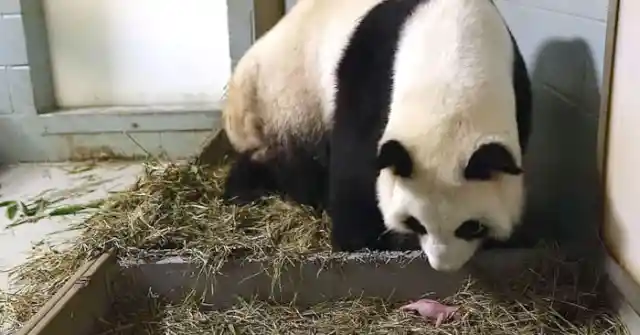
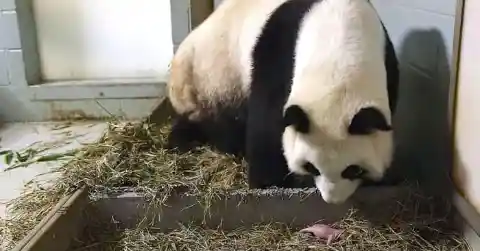
After all, sometimes female pandas display the right signs of labor, but when the due date arrives the outcome is not positive. No one at the zoo was, though, quite expecting what happened next.
Lun Lun was born at the Chengdu Research Base of Giant Panda Breeding in China on August 25, 1997.
Pregnant Mama Panda
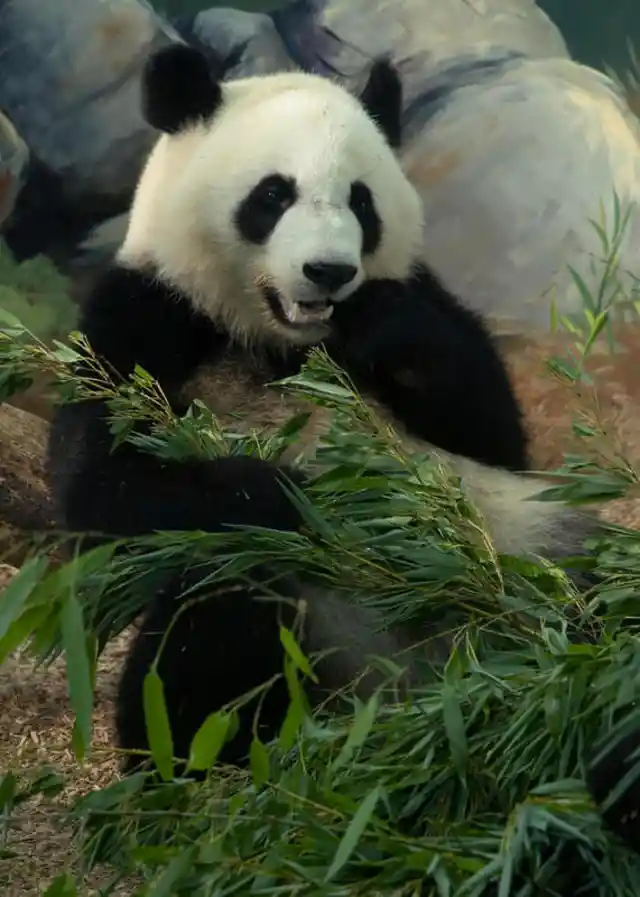
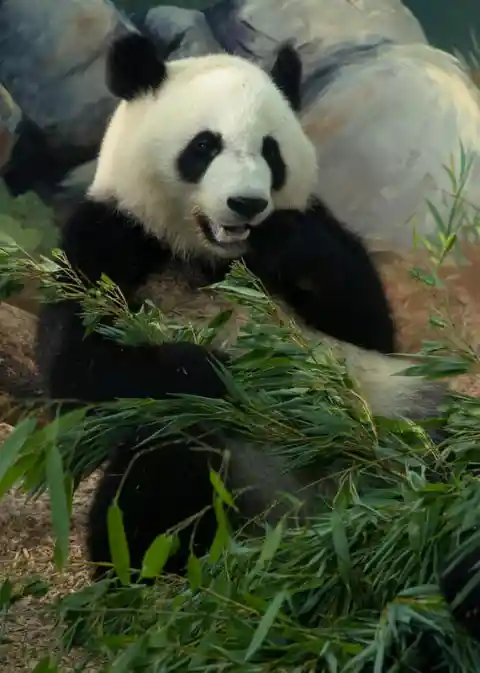
Lun Lun was already a mom to three other pandas, and when news broke that she was pregnant again carers at Zoo Atlanta were ecstatic.
The staff at Zoo Atlanta were keeping their fingers crossed for a healthy delivery from their pregnant giant panda.
Papa And Mama Panda
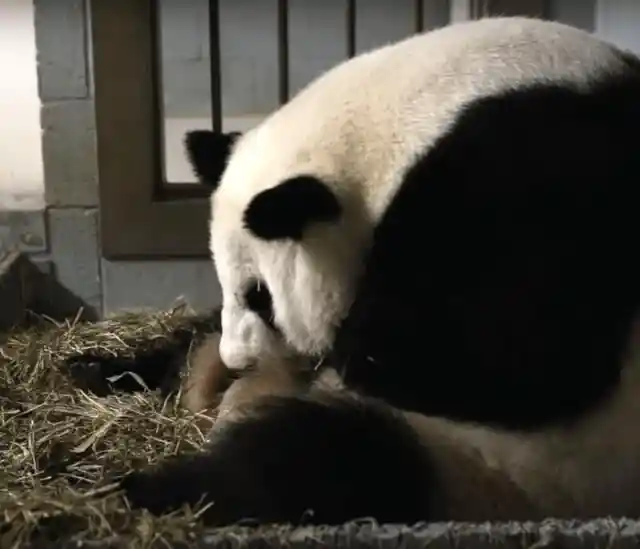
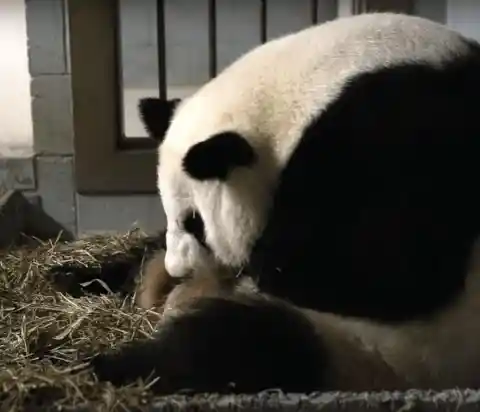
But, all anyone could really do was watch and play the waiting game.
Lun Lun was artificially inseminated by a male panda named, Yang Yang. This good-looking couple has been together at Zoo Atlanta since 1999.
China’s Chengdu Research Base of Giant Panda Breeding
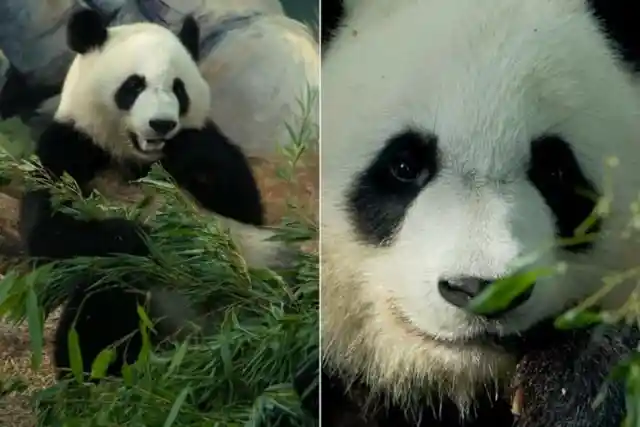
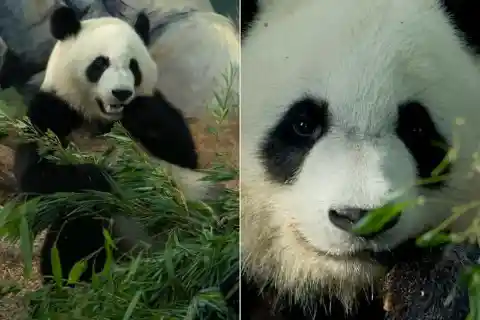
Lun Lun and 18-year-old male panda Yang Yang have seven offspring together, all resulting from artificial insemination.
Before living in Zoo Atlanta, Lun Lun and Yang Yang were actually both born at China’s Chengdu Research Base of Giant Panda Breeding in 1997.
Panda Romance
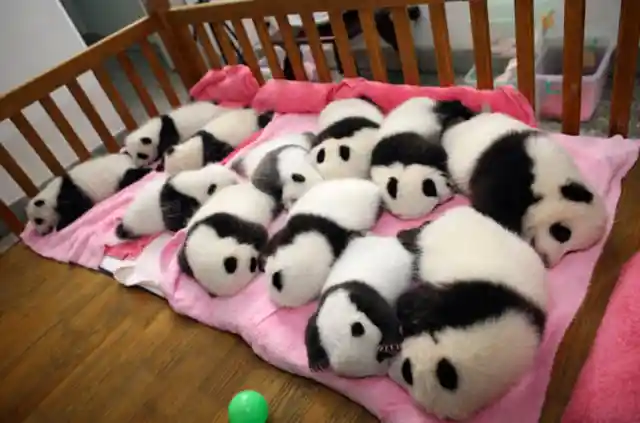
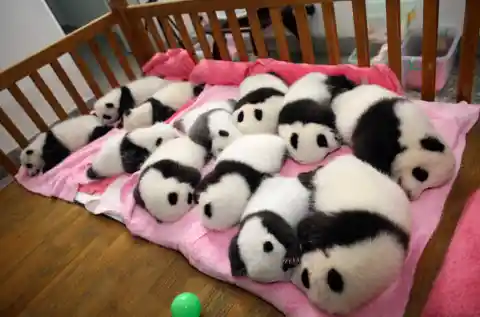
They were moved to Zoo Atlanta because the researchers had high hopes that they would become panda parents there.
Romance was always on the tags for these two Atlanta celebrities.
Mama Panda Likes Climbing
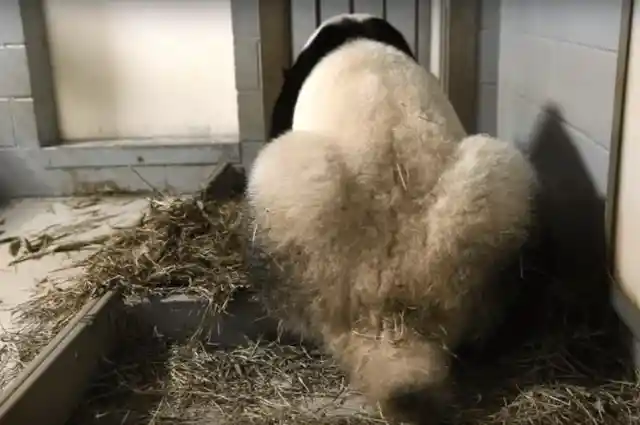
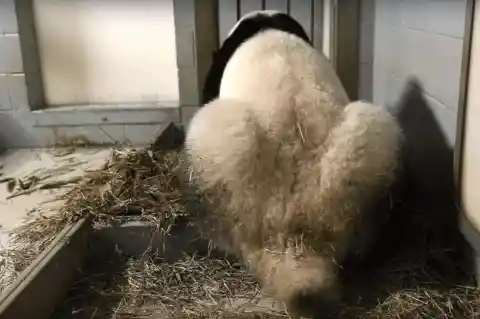
The zoo even posted their dating profiles on its website to give people an idea of the bears’ personalities.
For example, Lun Lun’s favorite hobbies are climbing and sleeping, while Yang Yang enjoys the smell of tabasco and lavender.
Panda Babies
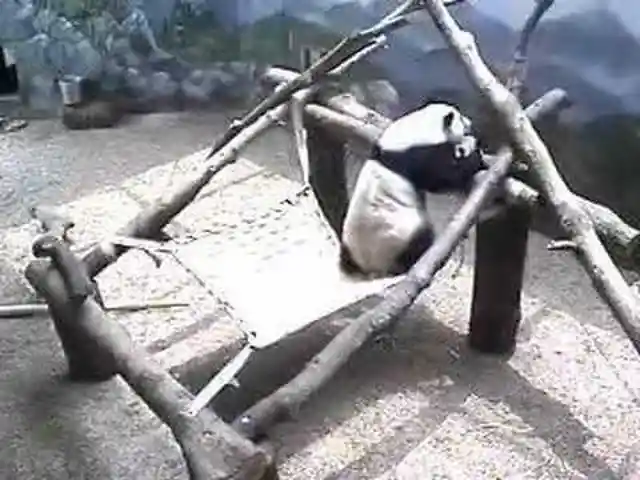
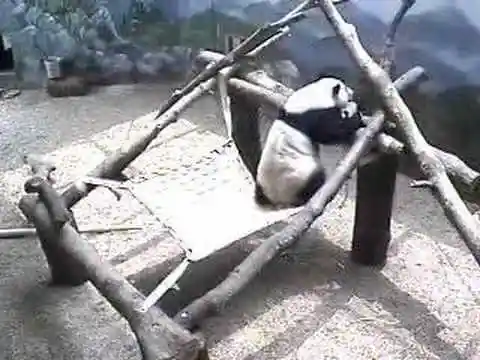
Naturally, the two giant pandas are favorites at the zoo, and a live webcam allows their fans to enjoy 24-hour panda entertainment.
Most importantly, Lun Lun and Yang Yang have managed to produce baby pandas successfully on three occasions. Their first cub, a male called Mei Lan, was born in September 2006, their second son, named Xi Lan, arrived in 2009, and a daughter named Po came along in 2011. And in 2013 the zoo’s breeding efforts were successful once more.
Twin Panda Babies
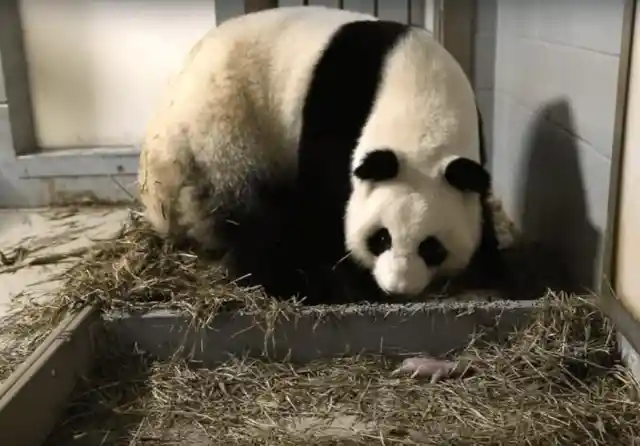
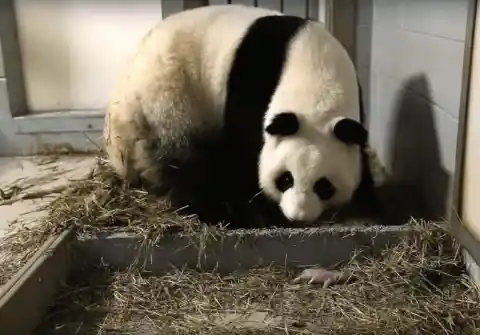
An ultrasound scan given by zoo staff confirmed that Lun Lun was pregnant for the fourth time. Understandably, the carers and the panda family fans were overjoyed.
Of course, the Zoo Atlanta staff have no doubt planned every step of the pregnancy, and still, nothing could have prepared them for what happened on the delivery day. That’s because, on the evening of July 15, 2013, Lun Lun gave birth to a tiny pink cub. That was followed minutes later by a second cub.
Hands Full
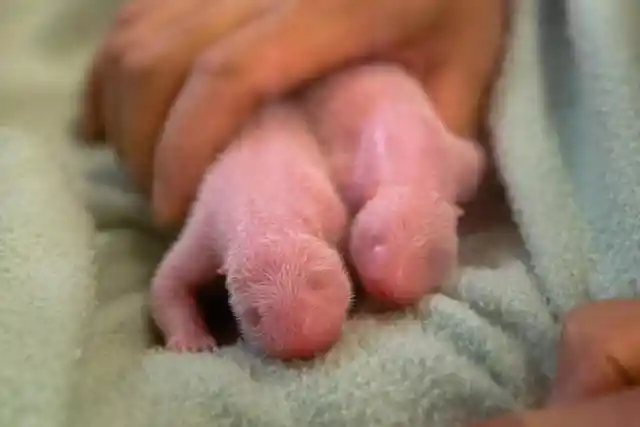
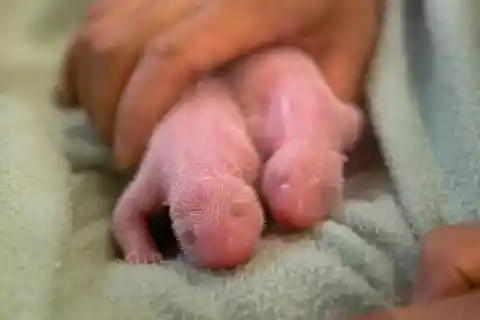
Yes, she had delivered twins! It was a huge surprise! During Lun Lun’s scans a single fetus was only visible so they were shocked to see another bundle of joy to come out of her.
Although it’s not uncommon for giant pandas to have twins in the wild, the two arrivals took zoo staff completely by surprise, as they hadn’t noticed the second fetus on Lun Lun’s earlier scan. What’s more, the cubs represented the first birth of panda twins in the United States since 1987.
We’re thrilled to welcome Lun Lun’s and Yang Yang’s twins,” said zoo President and CEO Raymond B.
Take Turns
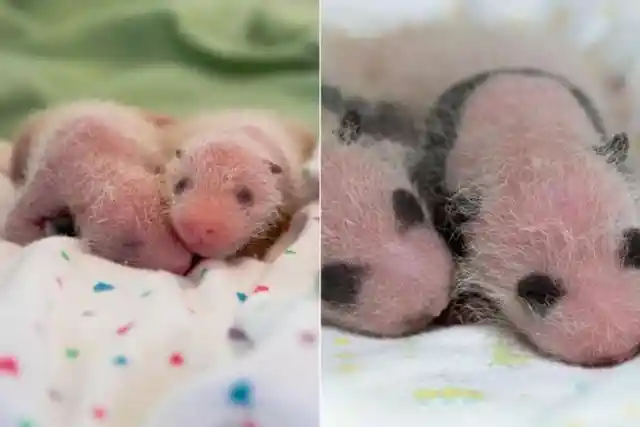
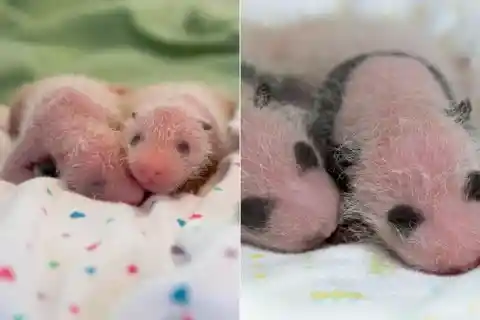
King after the birth. “Twins are an entirely new scenario for Lun Lun, Zoo Atlanta, and our animal care teams, who will no doubt be extremely busy over the next few months.”
In the wild, a mama panda tends to concentrate her efforts on just one cub, almost completely disregarding the other one. Therefore, carers kept a watchful eye on Lun Lun’s behavior and, when necessary, rotated the twins so that both received equal care and attention from their mom without making her too tired.
Growing Strong
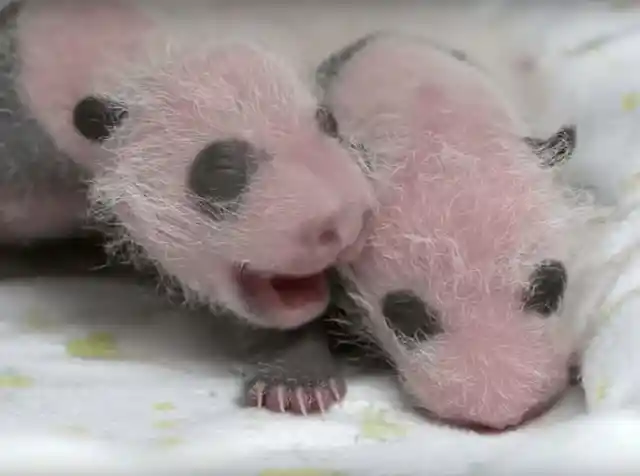
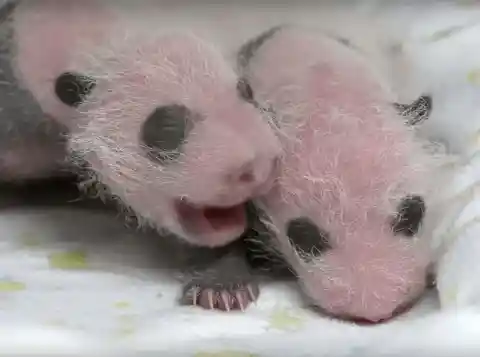
It’s a team effort for the mama panda and carers to watch over these precious little cubs. Hopefully, their efforts will pay off since baby pandas are not easy to care for.
In addition, due to the baby pandas’ tiny size, there is a risk of mortality in the first few months. And this risk was increased for Lun Lun’s babies, as the twins each weighed less than average for a newborn single cub.
Rising Stars


Thankfully, the twins got off to a good start and quickly gained weight during their first 100 days. It was also during this time that the tiny balls of black and white fluff, both females, were given the names Mei Lun and Mei Huan.
And just like their celebrity parents, a catchy nickname is a must for these rising stars.
Family Time
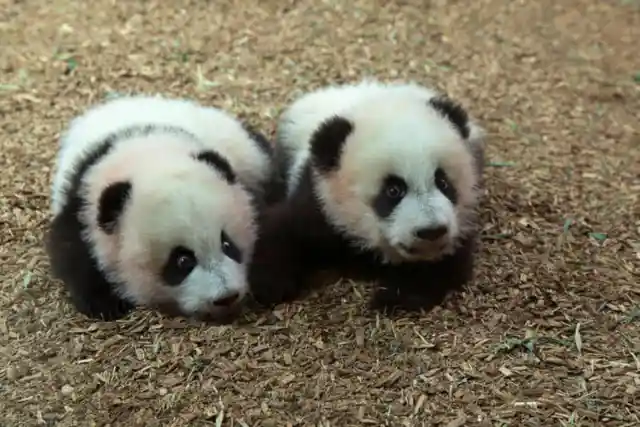
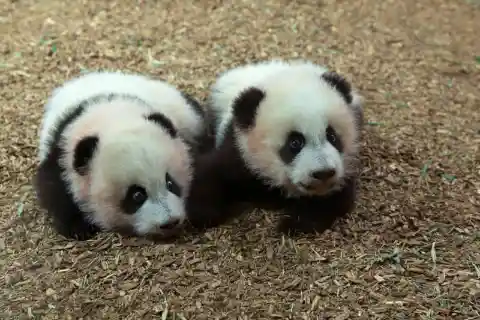
So appropriately the names, Mei Lun meaning “indescribably beautiful,” and Mei Huan Chinese for “magnificent” was given to these future zoo celebrities.
After a few months of bonding in private, the family was moved to another enclosure where the public could view mama’s gentle interaction with her cubs. Then, in February 2015, the young cubs were carefully weaned from Lun Lun and became fully independent little pandas.
Endangered Species
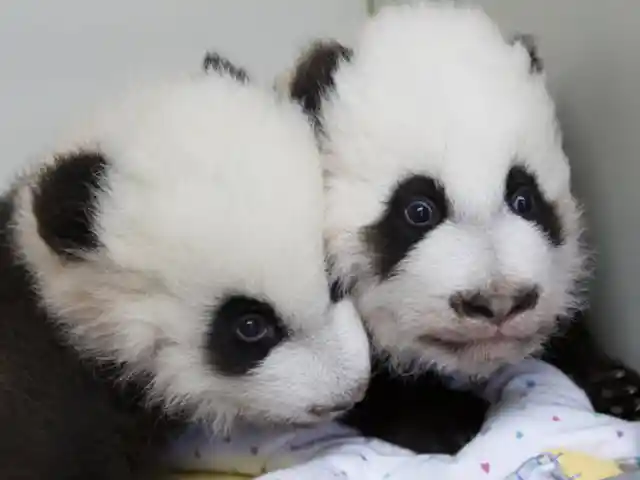
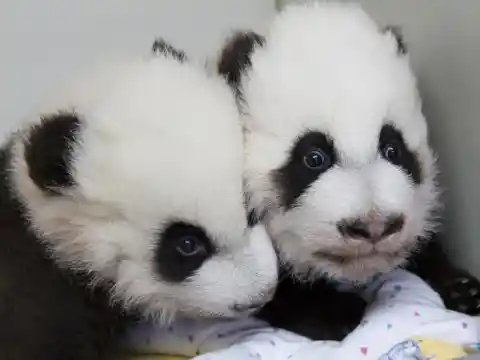
But, it’s not always cuddles and family love for the species. In fact, raising giant pandas is a serious conservation business because they are listed as endangered on the International Union for Conservation of Nature and Natural Resources’s Red List.
Sadly, these beautiful creatures have come under many threats over the years. Like habitat destruction, hunting and as well as the animal’s inability to reproduce easily.
Difficult Task
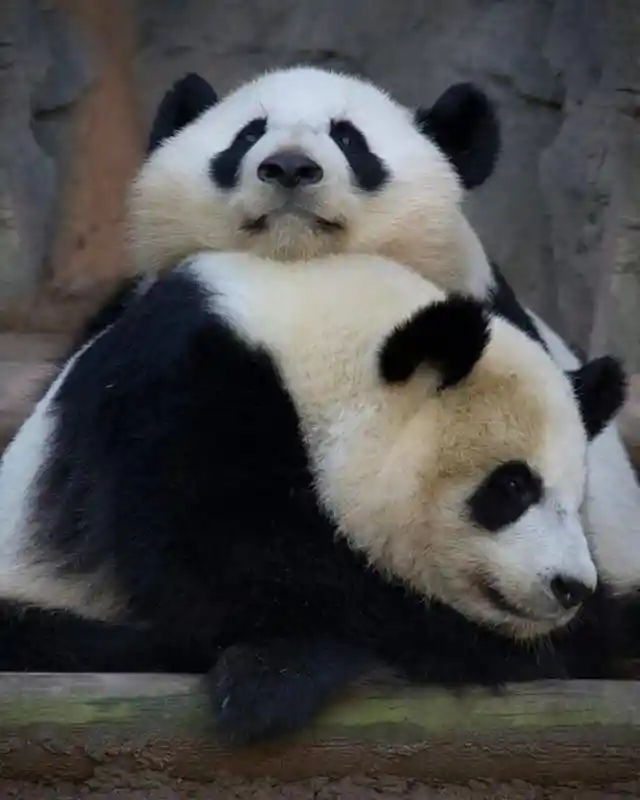
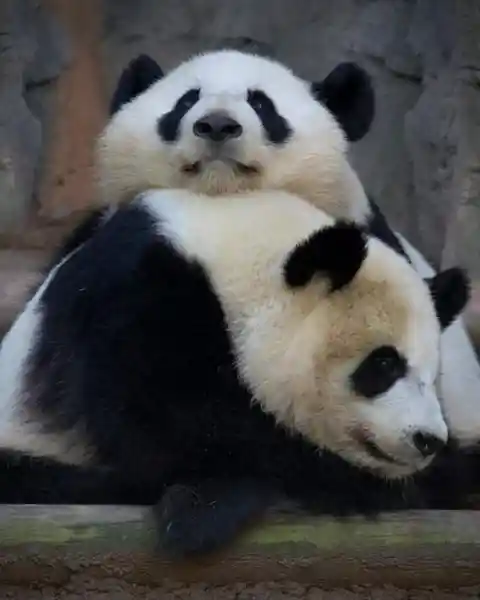
Certainly, it is very difficult for conservationists to boost panda numbers through breeding programs. This is owing in part to female pandas having a particularly short window in which they can get pregnant, just two or three days each year.
Aside from that, the female panda practices delayed implantation. This means that even if she is carrying a fertilized egg for 95 to 160 days of the pregnancy, it might not implant into her uterus until the week before delivery. And sometimes it won’t even happen, as the female’s body may “reabsorb” the fetus.
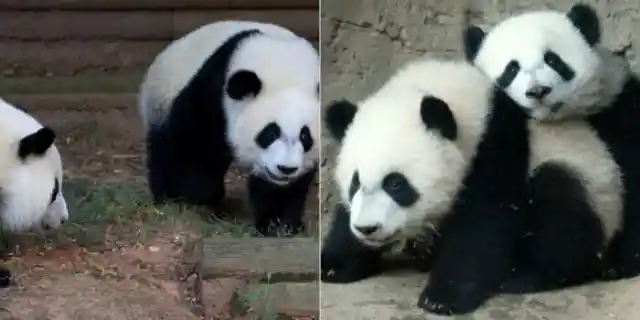
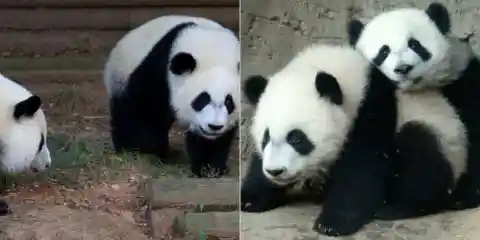
This is what’s called a pseudo-pregnancy, something that still bewilders biologists. To help with the whole process, most zoos will artificially inseminate the female with her partner’s sperm.